On International Day Against Homophobia, Transphobia, and Biphobia, Dr. Robin Lin Miller discusses global barriers for sexual and gender minorities seeking HIV/AIDS care
May 17, 2021 - Robin Lin Miller; Caroline Kraft
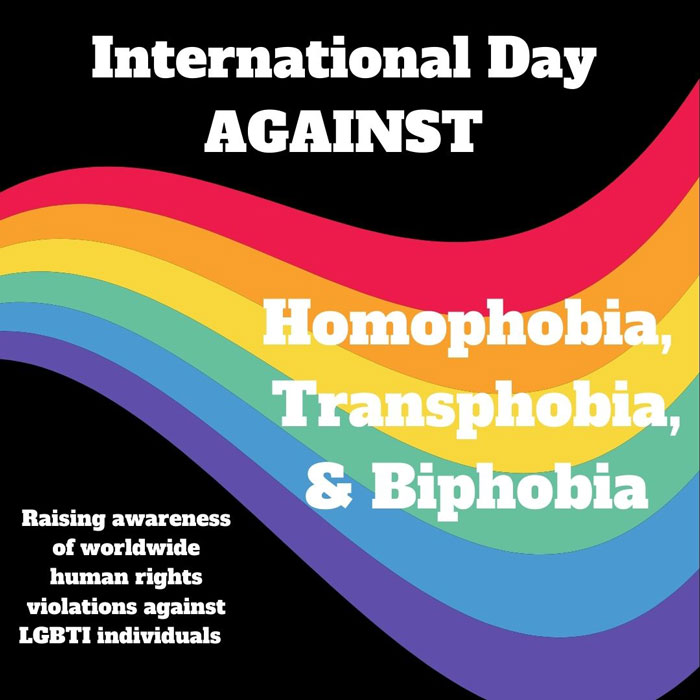 Monday May 17th is the International Day Against Homophobia, Transphobia, and Biphobia (IDAHOBIT), which aims to raise awareness of worldwide human rights violations against LGBTI people and people with diverse sexual orientations, gender identities or expressions, and sex characteristics.
Monday May 17th is the International Day Against Homophobia, Transphobia, and Biphobia (IDAHOBIT), which aims to raise awareness of worldwide human rights violations against LGBTI people and people with diverse sexual orientations, gender identities or expressions, and sex characteristics.
Dr. Robin Lin Miller is a professor of psychology at Michigan State University and director of the HIV and Sexual Health Research Team. Miller published a paper in March that addresses global inequities in access to HIV/AIDS care for gender and sexual minorities due to stigma, discrimination, and violence.
“People don’t realize that 62% of new HIV infections globally in 2019 occurred in five populations: gay men, transgender women, sex workers, injection drug users, and prisoners. These groups comprise a majority of new infections globally in nearly every region of the world. Of the $57 billion in development aid that went into HIV between 2016 and 2018, only 1% went to gay men’s needs even though they made up 20% of the infections during that time. AIDS funding has never corresponded in a close way with which populations are affected due largely to stigma.”
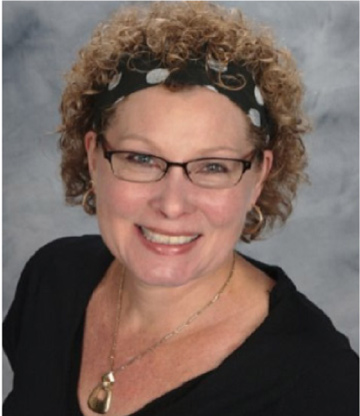 Miller’s research evaluated coordinated advocacy programs to address stigma, discrimination, and violence in order to improve access to HIV services in African and Caribbean countries that criminalize same-sex sexual relations or use other laws to a similar effect and which are known to have hostile social and political climates for sexual and gender minorities. Project ACT (Advocacy and other Community Tactics to Break Down Barriers to HIV Care for Gay and Bisexual Men and Transgender Women) was conducted between June 2018 and January 2020 in five African countries (Burundi, Cameroon, Côte d'Ivoire, Ghana, and Zimbabwe) and two Caribbean countries (Dominican Republic and Jamaica).
Miller’s research evaluated coordinated advocacy programs to address stigma, discrimination, and violence in order to improve access to HIV services in African and Caribbean countries that criminalize same-sex sexual relations or use other laws to a similar effect and which are known to have hostile social and political climates for sexual and gender minorities. Project ACT (Advocacy and other Community Tactics to Break Down Barriers to HIV Care for Gay and Bisexual Men and Transgender Women) was conducted between June 2018 and January 2020 in five African countries (Burundi, Cameroon, Côte d'Ivoire, Ghana, and Zimbabwe) and two Caribbean countries (Dominican Republic and Jamaica).
“Cameroon in 2018 had nearly 1800 reported acts of violence against the LGBTI community, including multiple murders. The very high-profile arrest of the transgender Cameroonian activist Shakiro earlier this year, her mistreatment in prison, and her recent sentence to 5-years imprisonment is but one example of the routine human rights violations that occur to LGBTI community members.” 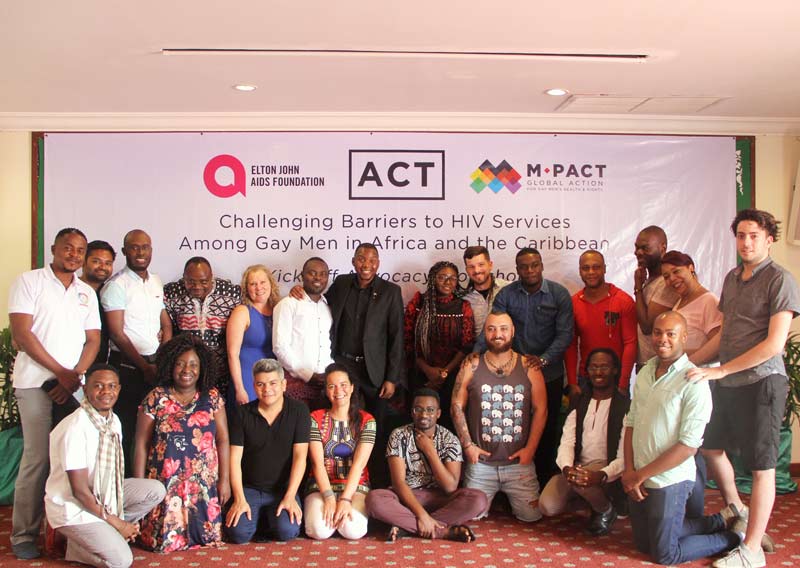
Discrimination and human rights violations also extend to medical treatment facilities. “We documented violations of basic ethical health care provision, such as violations of privacy; health care workers telling people in the community that a patient is gay or bisexual as a function of knowing what they got prescriptions for or what they are being treated for. People are undergoing incredibly humiliating treatment. Even if a country criminalizes homosexuality, their constitutions still protect the right to health care. Health care workers may struggle to balance their constitutional obligations, the dictates of the criminalization law, their sense of their professional ethics as health care providers, and their personal cultural and religious beliefs about same-sex attraction and gender expression. And those beliefs and the impulse to stigmatize or discriminate happens not just among health care providers, but also among security guards, patient registration clerks, and billing personnel in healthcare settings. An LGBTI person may not make it to the waiting room or the exam room because of their interaction with a security guard.” 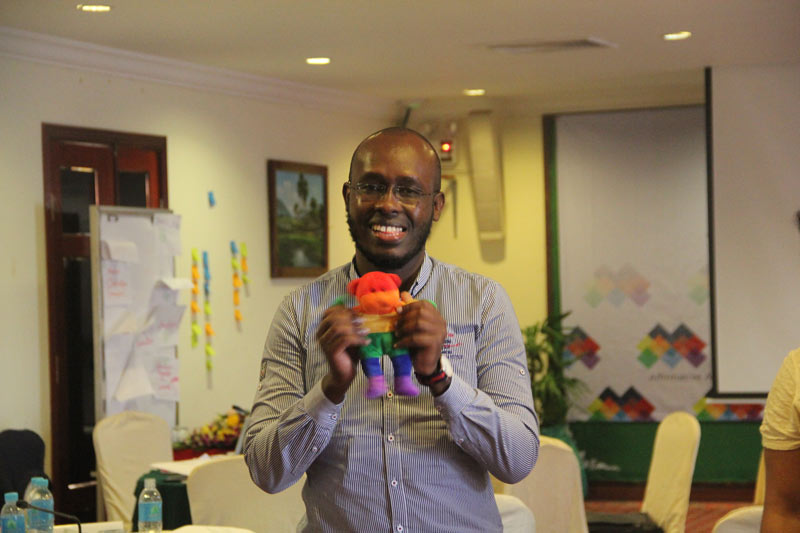
There is evidence that transgender individuals might face even more stigma than gay individuals when it comes to attempts to access HIV and sexual health care, although both experience degrading treatment.
“In Cameroon, for example if a transgender woman went to a care facility presenting as female, she was subject to nurses and patients openly mocking her in the waiting room. In the exam room gay men and transgender women faced similarly degrading treatment. Over and over, we heard that LGBTI people would rather die than ever again suffer the humiliation they experienced or had heard others had experienced while seeking health care.”
Miller says that studying human rights workers and advocacy organizations in these difficult situations will help us better understand what is required to improve access to care. “Human rights workers are working under the radar, under surveillance, and are risking charges of treason by serving these populations. They, too, are routinely harassed. Studies of the advocacy strategies that work best to create improvements in access to health care in contexts like this is critically important. But it is rarely undertaken.”
“There’s a lot of discourse about how Africa should respond to the west’s human rights goals for LGBT people and that in itself can be perceived as a colonizing dynamic. It’s a tightrope. You have to assume that local people understand how to advocate within their own country context in a wise, thoughtful, and safe way. Doing it the way you would do it in New York City or San Francisco is not going to be right for Cameroon, Zimbabwe, or Côte d'Ivoire. They are different contexts with different social, economic, political, and cultural dynamics around human rights, human sexuality, and how change progresses. So, you can have a general sense of how to push social change but we cannot assume a US model or one from a similar deliberative democracy is the best way to do this.” Based on these and other concerns, Miller drew on writing from the Made-in-Africa evaluation movement and on evaluation strategies from equity, trauma-informed, and culturally responsive evaluation approaches. “Advocacy is all about small wins and being able to suffer through the setbacks. A meaningful step forward has to be measured in local eyes.”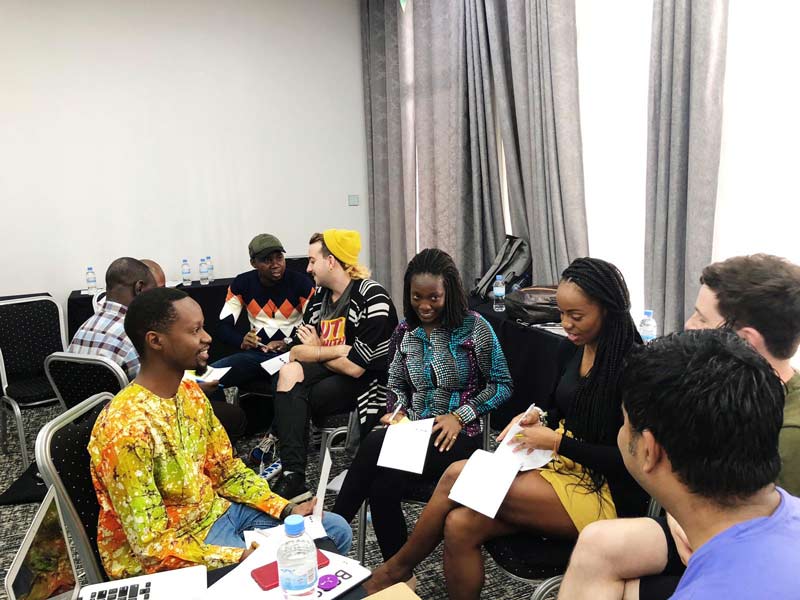
The push for social change to honor sexual and gender minority human rights is slowly progressing. There is a long way to go. Miller noted that community-led advocacy efforts did lead to concrete gains in access to healthcare for LGBTI people in the African and Caribbean countries in Project ACT. For instance, a large government hospital and city-wide system of clinics in Western Zimbabwe signed official agreements with a gay and lesbian human rights organization to work on making these care settings less stigmatizing and educating healthcare workers about the needs and concerns of LGBTI community members.
The COVID-19 pandemic has reduced access to HIV care. UNAIDS projects that between 2020 and 2022 alone the pandemic is likely to increase AIDS-related deaths globally by around 140,000 due to its impact on in the ability to receive care. 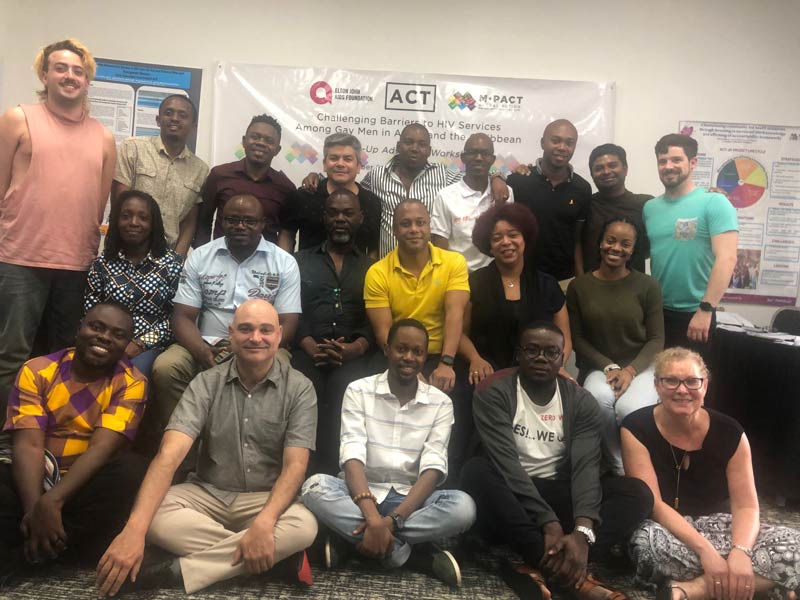
“In countries that don’t have a strong health care infrastructure to start with, that infrastructure was strained by having to divert resources, whether those were testing and lab resources or other resources, to the pandemic. Supply chain disruptions were enormous for getting medications to people. We know when you have emergencies like this, stigmatized populations get scapegoated and harassed. We see it here in the US. You see the news stories here regularly about attacks on Asian people. In this context, attacks in Africa on LGBTI people have increased dramatically. Upticks in violence and harassment create fear of seeking health care. AIDS workers have been arrested trying to do their work in some of the countries we worked in on Project ACT. Many of these countries simply don’t have the resources to handle multiple epidemics at the same time. They also have epidemics of malaria and tuberculosis they are already managing.”
According to the Global Fund, right now the COVID-19 pandemic is expected to set the progress against the AIDS epidemic back nearly a decade.
You can find the published manuscript here: https://link.springer.com/article/10.1007/s10461-021-03216-w

